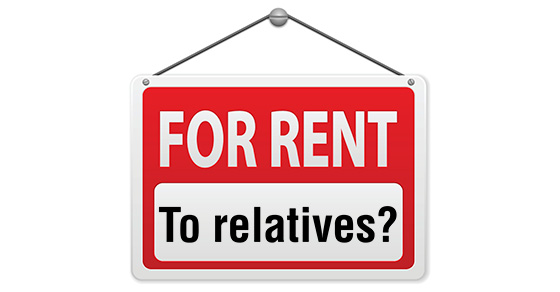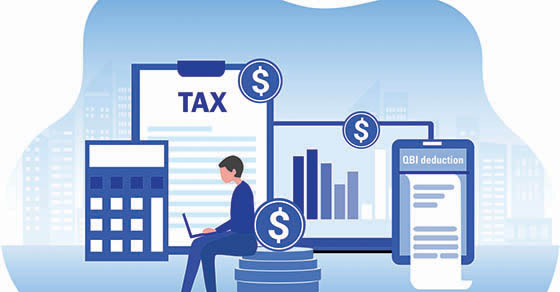Renting to a relative? Watch out for tax traps
- ByPolk & Associates
- Jan, 05, 2023
- All News & Information
- Comments Off on Renting to a relative? Watch out for tax traps
If you rent a home you own to a relative, there may be tax consequences. Renting out a home you own may result in a tax loss for you even if the rental income is more than your operating costs. You’re entitled to a depreciation deduction for your cost of the home (except for the portion allocated to the land). But if your tenant is related to you, special rules and limits may apply. For this purpose, “related” means a spouse, child, grandchild, parent, grandparent or sibling. No limits apply if 1) you rent to a relative who uses it as a principal residence (not just as a second or vacation home) for the year, and 2) it’s rented at fair market rent (not discounted).
Look forward to next year by revisiting your business plan
- ByPolk & Associates
- Jan, 05, 2023
- All News & Information
- Comments Off on Look forward to next year by revisiting your business plan
A new calendar year is about to arrive. Whether you’ve done a lot of strategic planning or just a little, a good way to double-check your objectives is to revisit your business plan. Traditionally, a business plan comprises six sections: 1) Executive summary. 2) Business description. 3) Industry and marketing analysis. 4) Management team description. 5) Implementation plan. 6) Financials. An executive summary is usually the first thing people read, but it’s the last section you should write. Instead, begin with your financials. That is, your business plan’s financial projections should support your strategic goals. Cash flow projections are particularly important. Contact us for help.
The standard business mileage rate is going up in 2023
- ByPolk & Associates
- Jan, 05, 2023
- All News & Information
- Comments Off on The standard business mileage rate is going up in 2023
The optional standard mileage rate used to calculate the tax-deductible cost of operating an automobile for business will be going up in 2023. The IRS recently announced that the cents-per-mile rate for the business use of a car, van, pickup or panel truck will be 65.5 cents. In 2022, the rate for the second half of the year (July 1 – December 31) was 62.5 cents per mile, and for the first half of the year (January 1 – June 30), it was 58.5 cents per mile. The standard mileage rate is useful if you don’t want to keep track of actual vehicle-related expenses. But you still must record certain information, such as the mileage, date and destination for each trip.
SECURE 2.0 law may make you more secure in retirement
- ByPolk & Associates
- Jan, 05, 2023
- All News & Information
- Comments Off on SECURE 2.0 law may make you more secure in retirement
The SECURE 2.0 Act, which was signed into law on Dec. 29, 2022, will help many Americans save more for retirement. However, many of the provisions don’t kick in for a few years. One provision that does take effect this year is an increase in the age for beginning required minimum distributions (RMDs). Employer-sponsored qualified retirement plans, traditional IRAs and individual retirement annuities are subject to RMD rules. They require that benefits start being distributed by the required beginning date. Under the new law, the required age used to determine distributions increases from age 72 to age 73 starting on Jan. 1, 2023. It will then increase to age 75 starting on Jan. 1, 2033.
Save for retirement by getting the most out of your 401(k) plan
- ByPolk & Associates
- Dec, 20, 2022
- All News & Information
- Comments Off on Save for retirement by getting the most out of your 401(k) plan
Does your employer offer a 401(k) plan? If so, contributing to it is a wise way to build a substantial nest egg. If you’re not already contributing the maximum allowed, consider increasing the amount. With a 401(k), an employee elects to have a certain amount of pay deferred and contributed by an employer on his or her behalf to the plan. The contribution limit for 2023 is $22,500. Employees age 50 and older by year end are also permitted to make additional “catch-up” contributions of $7,500 in 2023, for a total limit of $30,000. The amounts are up quite a bit from 2022 due to inflation. In 2022, you could contribute $20,500 with a $6,500 catch-up contribution for those age 50 and older.
2023 Q1 tax calendar: Key deadlines for businesses and other employers
- ByPolk & Associates
- Dec, 20, 2022
- All News & Information
- Comments Off on 2023 Q1 tax calendar: Key deadlines for businesses and other employers
Here are a few key tax-related deadlines for businesses during Q1 of 2023. JAN. 17: Pay the final installment of 2022 estimated tax. JAN. 31: File 2022 Forms W-2 with the Social Security Administration and provide copies to employees. Also provide copies of 2022 Forms 1099-NEC to recipients and, if reporting nonemployee compensation in Box 7, file them, too. FEB. 28: File 2022 Forms 1099-MISC if not required earlier and paper filing. MARCH 15: If a calendar-year partnership or S corp., file or extend your 2022 tax return. Contact us to learn more about filing requirements and ensure you’re meeting all applicable deadlines.
Timing is everything when it comes to accounting software upgrades
- ByPolk & Associates
- Dec, 20, 2022
- All News & Information
- Comments Off on Timing is everything when it comes to accounting software upgrades
Many businesses stick with their accounting software too long because it’s familiar and just good enough. But, when it comes to accounting system upgrades, timing is everything. Although you don’t want to spend money unnecessarily, you also don’t want to wait too long and risk losing a competitive edge, suffering data loss or incurring a security breach. Start by asking yourself: How long has it been since we meaningfully upgraded our accounting software? There may be better and even industry-specific products on the market. Work with your staff and leadership team to gain a detailed understanding of your specific needs and the technological savvy of your users. Contact us for help.
Governor Signed Remote PPT Fix for 2023
- ByPolk & Associates
- Dec, 15, 2022
- All News & Information
- Comments Off on Governor Signed Remote PPT Fix for 2023
From Mike Johnston, Executive Vice President of Government Affairs & Workforce Development I am pleased to report Governor Whitmer signed HB 4378 and HB 4379, which contained our fix for tracking personal property held by remote workers for 2023. This is the third year in a row in which MMA drove the solution to avoid […]
Selling stock by year-end? Watch out for the wash sale rule
- ByPolk & Associates
- Dec, 13, 2022
- All News & Information
- Comments Off on Selling stock by year-end? Watch out for the wash sale rule
Are you thinking about selling stock at a loss to offset gains that have been realized during 2022? If so, it’s important to be careful of the “wash sale” rule. Under this rule, if you sell stock or securities for a loss and buy substantially identical stock or securities back within the 30-day period before or after the sale date, the loss can’t be claimed for tax purposes. The rule is designed to prevent taxpayers from using the tax benefit of a loss without parting with ownership in a significant way. Note that the rule applies to a 30-day period before or after the sale date to prevent “buying the stock back” before it’s even sold. We can answer any questions you may have.
Do you qualify for the QBI deduction? And can you do anything by year-end to help qualify?
- ByPolk & Associates
- Dec, 13, 2022
- All News & Information
- Comments Off on Do you qualify for the QBI deduction? And can you do anything by year-end to help qualify?
Are you eligible to claim the qualified business income (QBI) deduction? Taxpayers other than corporations may be entitled to a deduction of up to 20% of their QBI. For 2022, if taxable income exceeds $170,050 for single taxpayers, or $340,100 for a married couple filing jointly, the QBI deduction may be limited in certain cases. Taxpayers may be able to save taxes with this deduction (or be subject to a smaller phaseout of the deduction), by deferring income or accelerating deductions at year-end so that they come under the dollar thresholds. You also may be able to increase the deduction by increasing W-2 wages before year-end. The rules are complex, so consult with us before taking steps.











You must be logged in to post a comment.